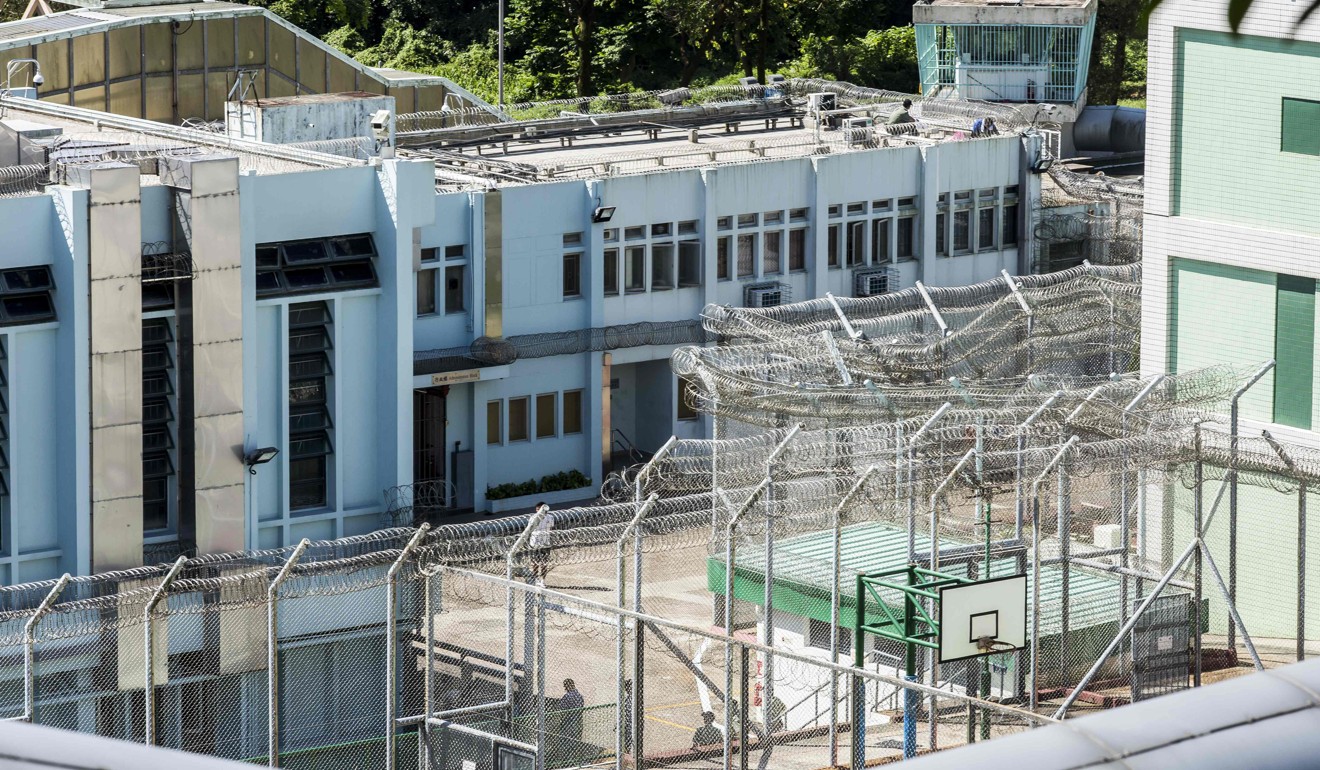
Behind bars, Hong Kong political activist Joshua Wong remains in good spirits
Visiting the city’s most famous inmate
“We are here to visit a friend,” I said to the guard at the entrance.
After a brief registration process, Tiff and I headed straight to the main building, almost sprinting to evade a pair of paparazzi. Once inside, we deposited our belongings in a locker and walked through an X-ray gantry. Tiff held on to a bag of personal supplies for Joshua.
Ex-Bar Association head wants Hong Kong justice chief to clear the air on jailing of activist trio
Visitors are permitted to bring basic items for inmates, but they must meet stringent prison requirements. Tiff knew the only way to guarantee compliance was to purchase everything – from notebooks to batteries and undergarment – at the general store near Lai Chi Kok Reception Centre, where Joshua spent his first night after his sentencing.
A short wait later, an officer called our number. Tiff and I located Joshua’s booth and there he was: the same scrawny boy with a different haircut.
He flashed a Cheshire cat smile, clearly elated to see his girlfriend. In an instant, I went from second visitor to third wheel.
Tiff picked up the handset to chat. I saw Joshua’s lips move but couldn’t hear him. The thick glass walls separating prisoners from visitors were certifiably soundproof. What did come through, however, was his good spirits.

Tiff spoke in rapid-fire spurts, updating Joshua on personal and political matters with determined efficiency. While they talked, a smiling prison guard saw me standing behind Tiff and walked over to offer me a chair. I declined but thanked him profusely.
“Your turn,” Tiff said, handing me the handset after some 10 minutes. Mindful that every second I took would be one fewer for the two of them, I rushed through what I needed to discuss.
I was most concerned about Joshua’s living conditions and bombarded him with questions. He told me the juvenile ward was surprisingly airy and that most nights he could barely feel the summer heat.
He worried somewhat about the physical training as he ... doesn’t answer well to strict commands
I asked him about any abuse, and he assured me there had been none whatsoever. He had just completed a seven-day “orientation”. He was expected to begin language and maths classes with other young inmates. He worried somewhat about the physical training – jogging and marching – as he isn’t the athletic type and doesn’t answer well to strict commands.
I asked him what the hardest part was about being behind bars.
“Passing the time,” he sighed. “Every day I rack my brain to keep myself occupied.” He had nearly finished the six books that visitors are allowed to bring him each month.
I wanted to know if he had a message for his supporters.
“Please tell everyone I’m doing fine and not to worry about me. Instead, ask them to help Demosisto in any way they can,” he said, referring to his pro-democracy political party.
“The majority of our core members are, or will soon be, in jail,” he added. “But we won’t give up.”
The rest of the 30 minutes went by quickly. We knew time was up when several uniformed officers suddenly appeared to escort the inmates back to their cells. Joshua got up and waved goodbye, training his eyes on Tiff and still smiling from ear to ear. It was sweet and heartbreaking.
Two student activists jailed along with Joshua Wong in Hong Kong moved to separate prisons
All things considered, Joshua has adjusted well to the new environment.
What’s more, based on my limited interaction with the staff, everyone in the juvenile ward seemed to be courteous and helpful. Nothing suggested Joshua was being treated with anything but respect and professionalism. Perhaps his fame had afforded him some protection.
All that may change after Joshua turns 21 in October, when he will be transferred to the adult ward. There, he will be required to work every day – be it carpentry, laundry, kitchen duties or repairs and maintenance – to earn his keep. And he will have to adapt to a new routine all over again.
Jason Y Ng is a columnist and author of several books, including Umbrellas in Bloom: Hong Kong’s Occupy Movement Uncovered.

